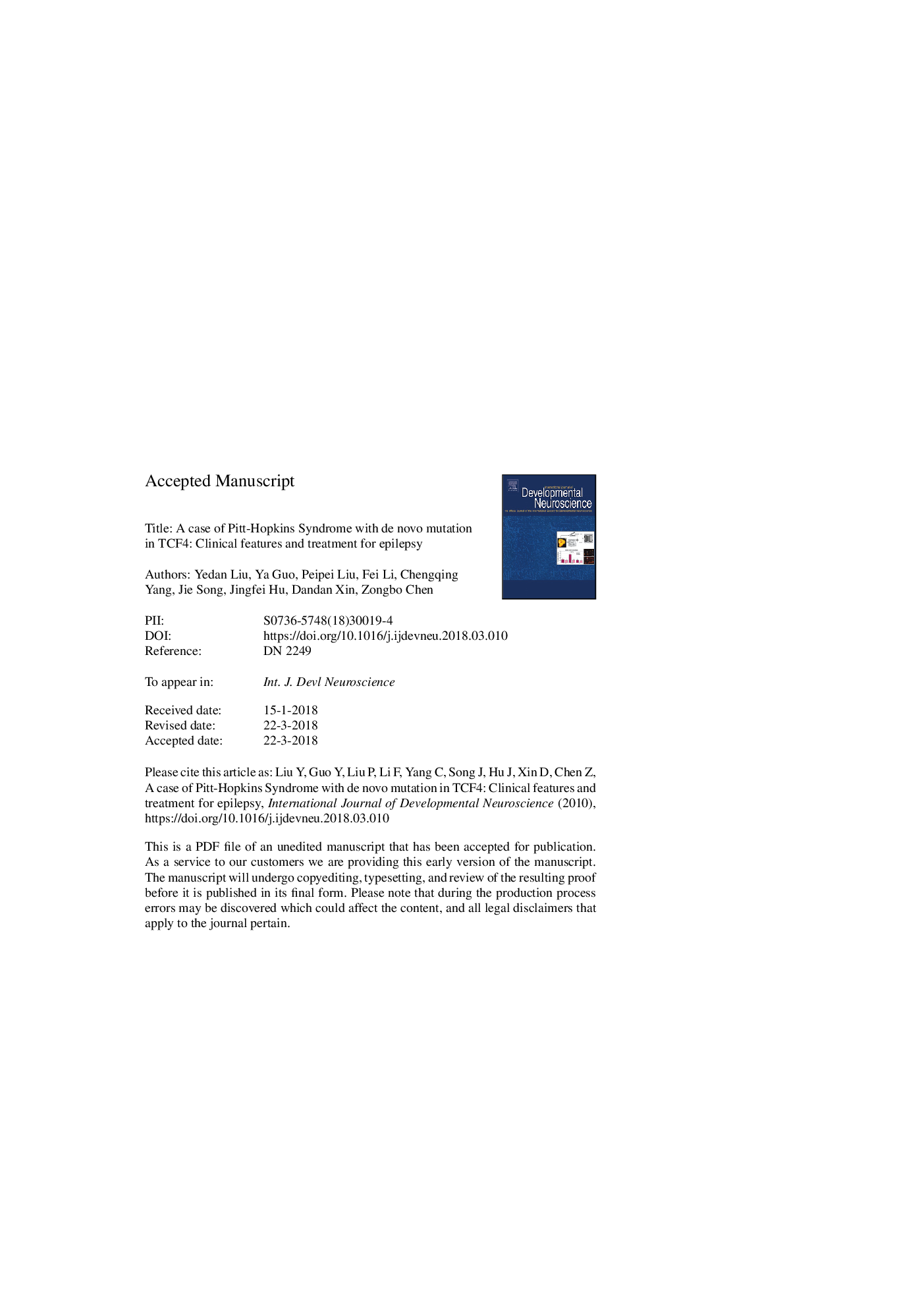| Article ID | Journal | Published Year | Pages | File Type |
|---|---|---|---|---|
| 8626091 | International Journal of Developmental Neuroscience | 2018 | 14 Pages |
Abstract
Pitt-Hopkins syndrome (PTHS), belonging to the group of 18q-syndromes, is a rare genetic disorder caused by mutations in TCF4. PTHS is characterized by distinctive facial appearance, intermittent hyperventilation, intellectual disability and developmental delay. Although patients with PTHS generally have various systemic symptoms, most of them with a TCF4 mutation manifest the central nervous system (CNS) disorders. We described the first Chinese case with Pitt-Hopkins syndrome based on clinical presentations and genetic findings. In addition to the typical features of PTHS, the girl also had paroxysms of tachypnea followed by cyanosis and recurrent seizures. Comprehensive medical examinations were performed including metabolic screening, hepatic and renal function evaluation, abdominal and cardiac ultrasounds. The presence of epileptic discharges in electroencephalography and abnormal brain magnetic resonance imaging were found. High-throughput sequencing was used to detect genetic mutations associated with CNS disorders. Sanger sequencing was used to confirm the mutations in the patient. The c.2182Cï¼T (p.Arg728Ter) mutation was a de novo nonsense mutation at exon 18 in the TCF4 gene of the patient. In conclusion, we have identified a de novo nonsense mutation of TCF4 carried by a Chinese girl with PTHS. The patient underwent anti-epileptic therapy (sodium valproate, levetiracetam, clonazepam), resulting in a reduction of the seizures.
Related Topics
Life Sciences
Biochemistry, Genetics and Molecular Biology
Developmental Biology
Authors
Yedan Liu, Ya Guo, Peipei Liu, Fei Li, Chengqing Yang, Jie Song, Jingfei Hu, Dandan Xin, Zongbo Chen,
